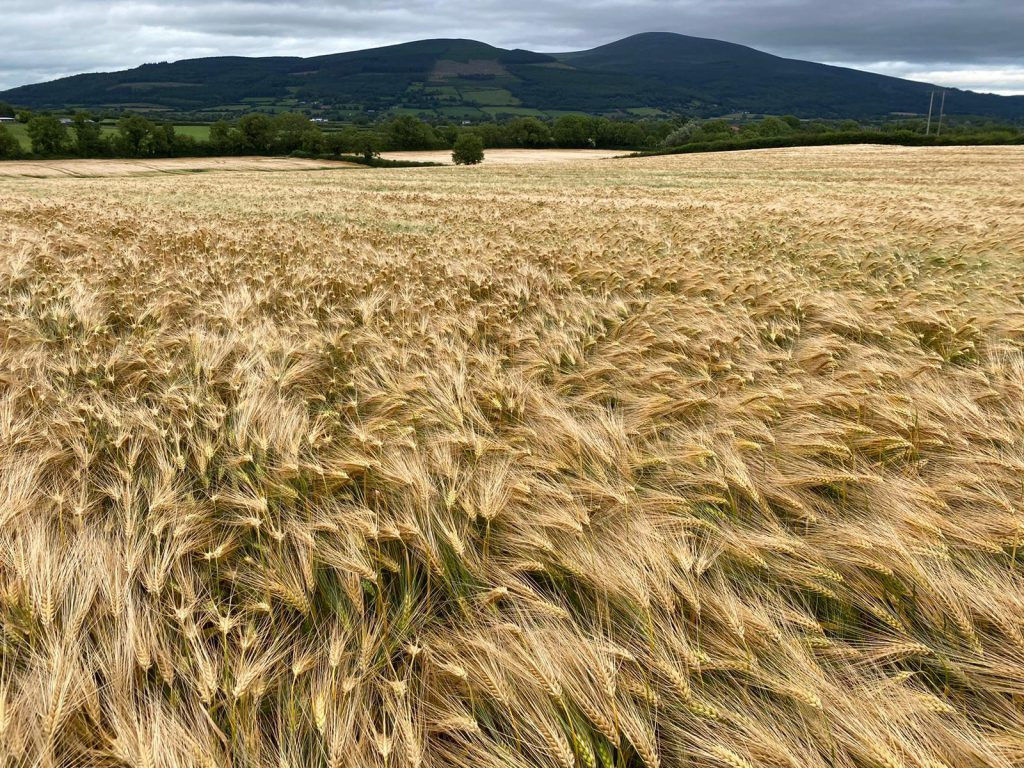A Growing Demand for Barley: The Rise of BYDV-Tolerant Varieties
Teagasc, Ireland's agriculture and food development authority, has reported a significant surge in demand for winter barley varieties that are tolerant to Barley Yellow Dwarf Virus (BYDV). This trend highlights the growing concerns among farmers about the virus and its potential to severely impact yields.
Shay Phelan, a tillage specialist at Teagasc, explained that the demand for BYDV-tolerant varieties is driven by a desire to mitigate the risk of the virus, which can lead to stunted growth and reduced grain quality. The demand for BYDV-tolerant varieties has led to some varieties, like Orcade, being sold out. While there is a growing concern about the impact of BYDV, some farmers are eager to begin planting winter barley early, even in September.
Why The Early Bird Doesn't Always Get The Worm: The Risks of Early Sowing
While the desire to get a head start on planting is understandable, Teagasc cautions against early sowing. This practice, while seemingly beneficial, can expose crops to several challenges, including:
The Threat of BYDV
Early sowing increases the risk of BYDV infection. Although BYDV-tolerant varieties offer some protection, Phelan emphasizes the importance of insecticide application, especially for crops planted in September.
Take-All: A Major Issue
Teagasc highlights take-all, a fungal disease that can decimate cereal crops, as another significant risk associated with early sowing. Crop rotation and sowing date are crucial tools in controlling this disease. Studies have shown that later sowing can lead to higher yields in take-all-prone environments.
Grass Weed Infestations
Grass weeds pose a considerable challenge for farmers, and early sowing can exacerbate the problem. Early sowing can lead to denser weed growth, making it harder to control and reducing the overall yield.
A Closer Look at Winter Malting Barley: Choosing the Right Variety
While the demand for BYDV-tolerant varieties is increasing, farmers are also increasingly interested in growing winter malting barley for its potential to attract premiums in the market. The UK Maltsters Association (MBC) has a rigorous testing process for malting barley varieties, ensuring that they meet the specific requirements of the malting industry.
Choosing the right malting variety is critical to ensure that the crop meets the quality standards demanded by maltsters. For example, CRAFT, a winter malting barley with Full MBC Approval, is a popular choice in the UK due to its high specific weight, big grains with low screenings, and good disease resistance.
The Growing Demand for Malt Distilling Varieties
SY VESSEL, a winter malting barley with Provisional MBC Approval for malt distilling, has gained significant traction as it offers growers the flexibility to meet specifications for both the brewing and distilling markets. The variety is known for its competitive yields and high Hot Water Extract and Predicted Spirit Yield figures, which are crucial for both brewers and maltsters.
Balancing the Risks: The Importance of Strategic Planning
Farmers need to carefully weigh the risks and benefits associated with early sowing and choose the variety that best suits their individual circumstances. Factors such as the availability of contracts, the specific requirements of the maltster, and the level of risk tolerance should all be considered when deciding on the ideal variety and sowing date. The key takeaway is that early sowing can be risky but planning and choosing the right variety can help mitigate the risk and maximize profitability.
Navigating the Future of Barley Production: Innovation and Collaboration are Key
The future of barley production will be shaped by ongoing research and collaboration between farmers, breeders, and maltsters. The focus on developing BYDV-tolerant varieties and other resilient crops, along with finding ways to optimize planting dates and crop management practices, will play a vital role in ensuring the success of this important agricultural sector.

















